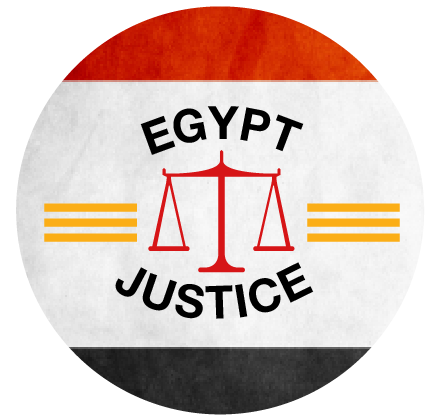NOTICE: Some of the contents of this website are now outdated due to my departure from Egypt in 2015, but the fundamentals remain valid. — David Risley
Freedom of Religion and the Constitution in Egypt
READ: The Distinction Between Belief and Practice, and Protecting Religion and Government from Each Other
Supreme Constitutional Court rules portions of Protest Law unconstitutional
As goes the judiciary, so goes the country
Middle East Institute policy paper
The Egyptian Judiciary is One of the Most Powerful and Autonomous of Egypt's Multiple Poles of Power
The currently popular, selectively negative narrative about the Egyptian judiciary fails to reflect the deeper and more consequential realities beyond the headline-grabbing stories. If all one has to rely on are popular news media stories about sensationally injudicious trial court rulings, the picture one gets of the judiciary is little more than a distorted caricature.
For example, while the inflammatory rulings of some lower court judges make headlines and draw condemnation around the world, the far more consequential reality is that such injudicious lower court judgments are being consistently reversed on appeal in cases across the political spectrum.
An important case in point is the Court of Cassation's scathing reversal—a multi-level repudiation—of the original trial court judgment in the Al-Jazeera English journalists case. The Court of Cassation judgment reflects the real standards of Egyptian justice, not the trial court judgment that was reversed. (Read more)
Even at the trial level, while there have been several highly reported mass convictions of anti-government demonstrators, there have also been several little-reported mass acquittals. (Read more)
Before the January 25, 2011, revolution, the scholarly and popular narrative about the Egyptian judiciary was generally positive, reflecting the judiciary's historic battles for independence from authoritarian rule and defense of political rights. (Read more)
After the revolution the popular narrative became almost exclusively negative. For the most part, it was not the judiciary that underwent fundamental change as much as it was the popular narrative and the reaction of many judges to attacks on the judiciary, to real and perceived national security threats, and the perception of a need to restore social and political order. But, while some judges have resorted to injudicious means of achieving those objectives, not all of Egypt's judges have been willing to sacrifice their judicial integrity in the pursuit of a judicial counter-offensive, particularly those judges at the highest and most consequential levels.
A selectively negative narrative about the judiciary is damaging, even dangerous, when allowed to shape foreign policy toward Egypt.
The more the international community allows the injudicious actions of some judges to define perceptions of the judiciary as a whole, and by extension of the Egyptian government, the more the world recoils from and isolates both the judiciary and government.
And, the more a broad-brush demonization of the judiciary as a whole is accompanied by a pattern of attributing negative but not positive judicial actions to the government, the greater the perception from an Egyptian point of view of a deep Western government bias against Egypt, which is assumed to be both calculated and driven by an agenda at odds with Egypt’s interests.
Such mutual misperceptions between nations are more than unfortunate, they are counter-productive to the point of being dangerous, given that Egypt is a strategic center of gravity in the Arab Middle East.
This is an important time in Egypt's history, when many masks are coming off. Previously hidden currents and cross-currents now roil the waters of Egyptian society, the government, and the judiciary.
This site was created to fill the need for a reliable, experience-based source of information about Egypt's judiciary and legal system.
Website Overview: Law, Judiciary, Analysis, and Contributors
The law and judiciary branches of this website are primarily informational (just the facts). One of the most valuable features is English translations of key laws and court judgments, some of the most important of which are publicly available nowhere else.
The analysis branch provides perspective and insight on topics of current interest and current events. Content is searchable by using search terms and sorting content by categories and tags.
The contributors branch features essays and presentations by Egyptian judges and others.
This is an ongoing project. As funding sources are identified for additional English translations of court judgments and laws, its value will steadily increase.
Comments, correction, and constructive criticism are invited, and may be communicated by using either the "contact" page or the "comment" feature beneath some essays and all blog entries.

